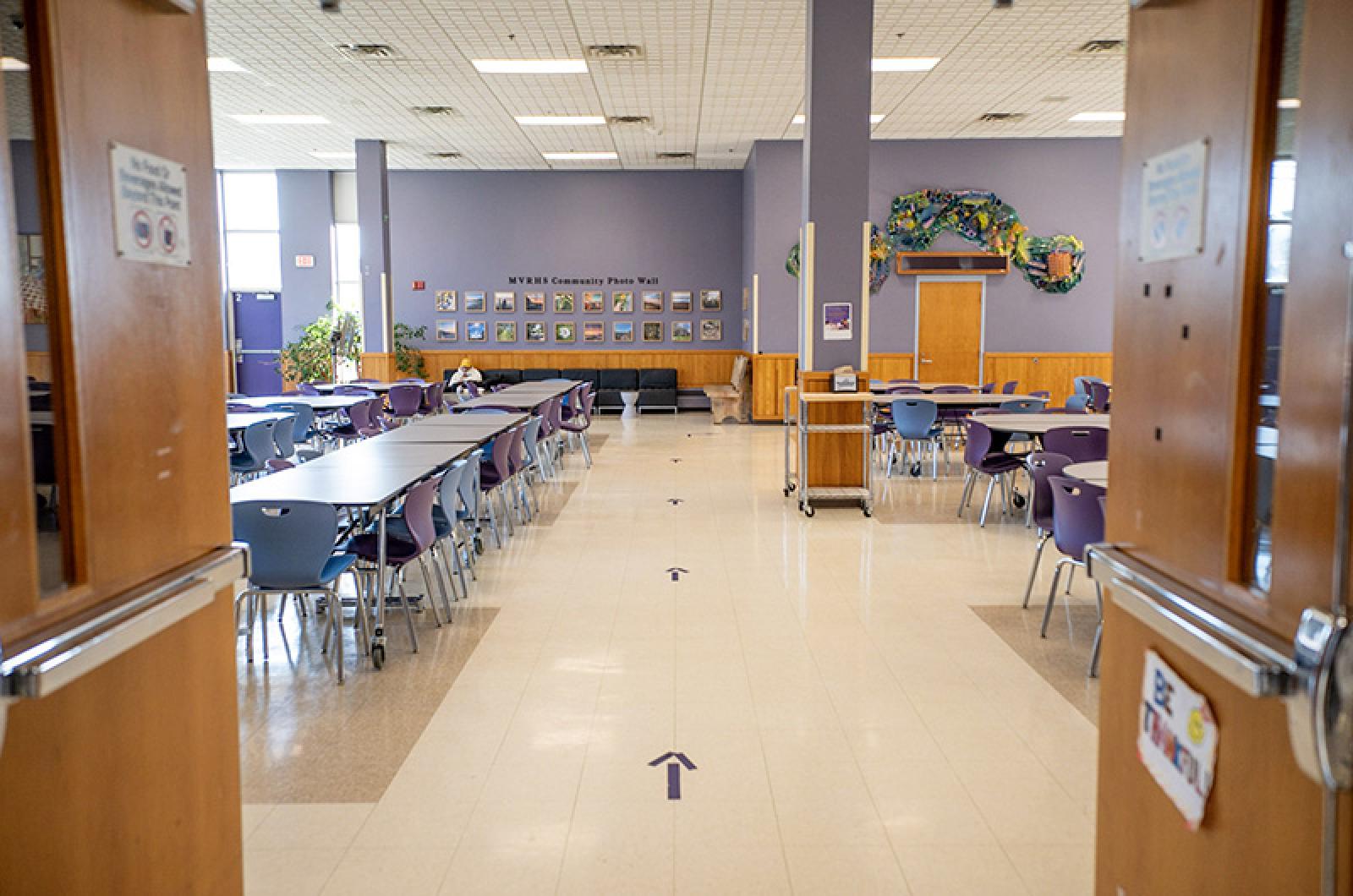Island high school students have effectively bounced back from pandemic-era educational challenges, said regional high school principal Sara Dingledy at a meeting of the MVRHS school committee on Monday. Improvements in student standardized testing scores are especially noteworthy, she said, as the school’s English Language Learner program grows.
The Massachusetts Comprehensive Assessment is a standardized math and English test administered to third, eight and tenth graders. This year, Ms. Dingledy explained, the state is comparing MCAS scores to 2019 statistics, excluding outliers in 2020 and 2021.
“We’ve actually improved significantly,” she said. “It’s a moment for us to take stock and see what has been working data-wise.”
Scores for the state standardized test were released in late September, showing improvement at the regional high school. But Ms. Dingledy and other school officials provided further perspective on the scores at the meeting Monday, noting that they improved from even pre-pandemic performance averages.
The high school’s first-time passing rate for the English test increased to 97 per cent in 2022, up from 93 per cent in 2019. English scores also improved in the meets or exceeds expectations category, which compares students’ tenth to eight grade scores. MVRHS has increased from 60 per cent in in 2019 to 73 per cent in 2022 in this category, the 12th highest improvement level in the state. First-time passing rates in math also went up, from 91 per cent to 94 per cent. Ms. Dingledy explained that the advanced math coursework of Island middle-schoolers slightly skews data on high school improvement because of the quality of the lower-school programs.
The progress, Ms. Dingledy said, is also a reflection of the effectiveness of the high school’s ELL program. The school’s ELL population has increased considerably in recent years, from 9 per cent in 2014 to 26.9 per cent in 2022.
Ms. Dingledy used these demographic changes to explain the schools 1.6 per cent dropout rate.
“It’s something we’re gonna have to make peace with,” she said, explaining how some Brazilian students sometimes attend high school for a year before returning to Brazil. “We get students who at 17 years old don’t know English, who don’t have any credit, who come from Brazil, [and] we enroll them,” she said. “We can do a lot with students, we can teach English, we can give job performance skills, but it is a struggle.”
Committee members praised the school’s efforts throughout the challenging past few years.
“That’s just the best thing I’ve heard in all the data presentations over all the years,” said member Roxanne Ackerman.
In other business, committee chair Robert Lionette read a letter of thanks from College Board CEO David Coleman addressed to the school’s AP Spanish class students, who provided translation services when a group of Venezuelan migrants were sent to the Island in September.
“The gracious and generous actions you took to serve the men, women and children who arrived in Martha’s Vineyard last month are a credit to your community,” it read. “You and your classmates demonstrated the fundamental purpose of an education.”
The committee also approved the creation of a grant-funded, part-time administrative support position for the school’s I-CARE program, which provides emotional and mental health services to students. The need for such a position, explained school research specialist Kim Garrison, is due to the high volume of student requests for appointments, which has increased the scheduling burden for counselors.
“This is an area I feel strongly we need to support,” said Mr. Lionette, who encouraged Ms. Garrison to consider the pilot position for future years’ budgets.
The comittee also accepted four grants awarded to Island schools, each presented by finance manager Mark Friedman. They were awarded $100,000 by the Peter and Elizabeth Tower Foundation to train staff in collaborative problem solving, $3,500 from the National Endowment for the Arts Foundation to fund a teacher’s trip to Finland, $19,988 from the federal government to integrate social and emotional skills education and $16,650 from The Sound Foundation to benefit the Oak Bluffs School’s yoga program.






Comments
Comment policy »